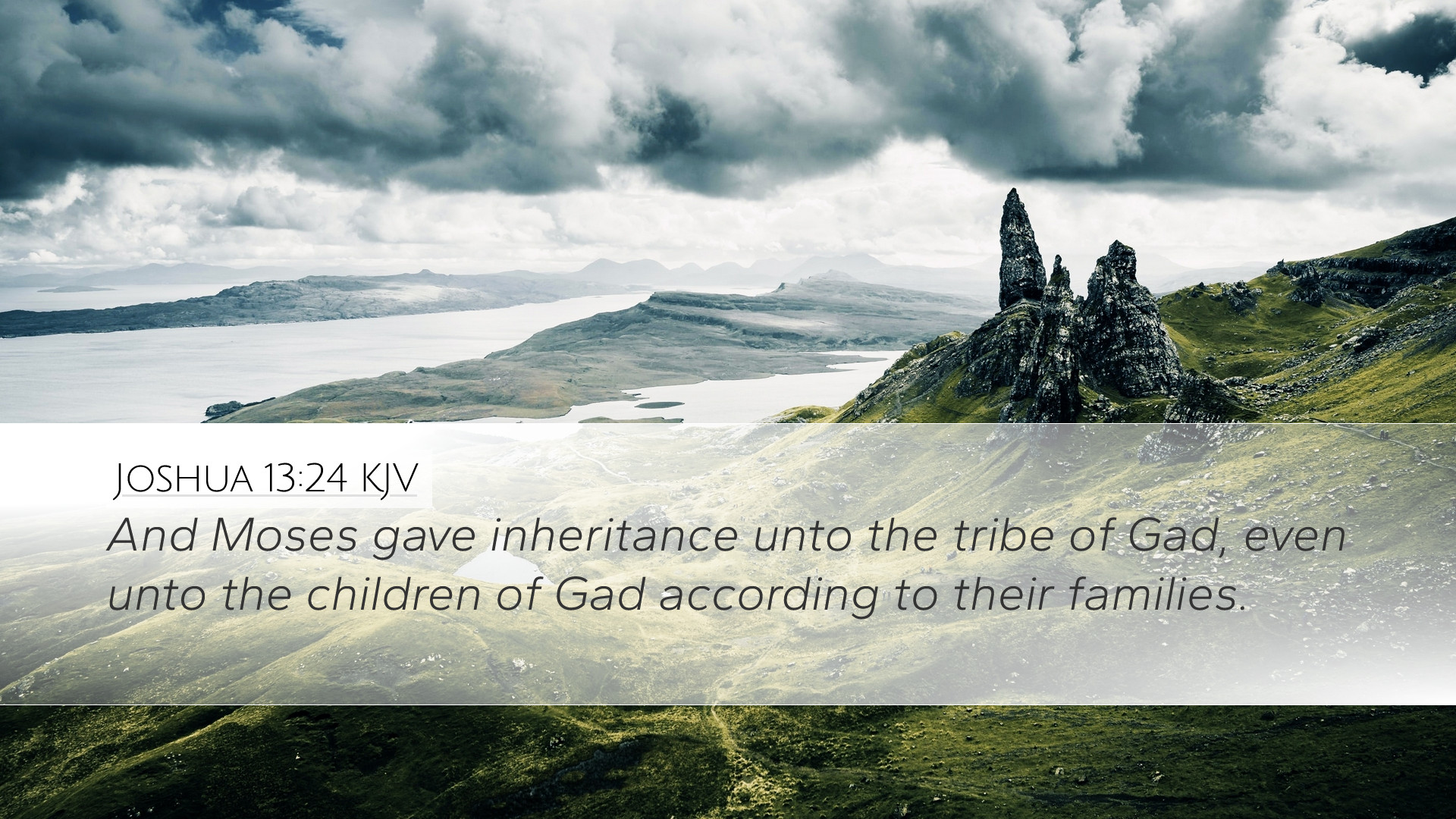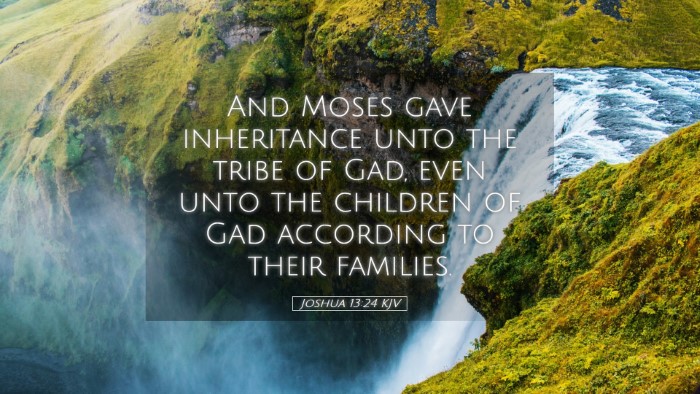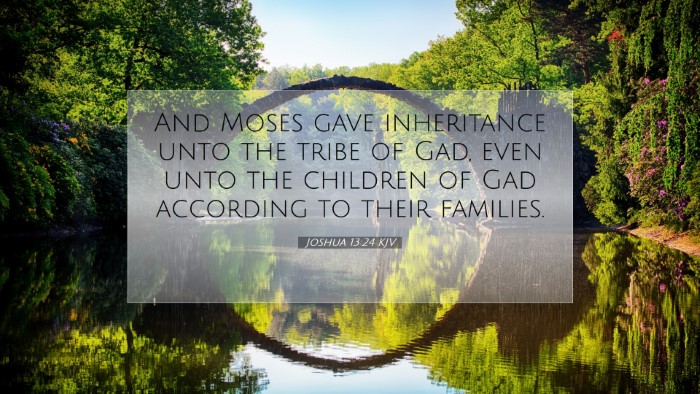Commentary on Joshua 13:24
Joshua 13:24 states: "And Moses gave inheritance unto the half tribe of Manasseh; and this was the possession of the half tribe of Manasseh by their families." This verse provides insight into the inheritance given to the half-tribe of Manasseh and its implications for understanding God’s promises and the fulfillment of divine covenants.
Contextual Overview
The Book of Joshua marks the transition of Israel from a nomadic people into a settled nation within the promised land. Chapter 13 is particularly significant as it details land allocations after the conquests led by Joshua. The narrative highlights the importance of organized divisions in the inheritance of land, as God had promised it to the Israelites through successive generations.
The Half Tribe of Manasseh
The division of the half-tribe of Manasseh is a key focus in this passage. As outlined by Matthew Henry, the tribe of Manasseh was significant due to its size and the unique situations surrounding its inheritance. It was divided into two sections: one that remained east of the Jordan and one to the west.
This division is noteworthy in several ways:
- Geographical Significance: The territories allotted to Manasseh, both east and west of the Jordan, were substantial and strategically located.
- Theological Implications: Their inheritance serves as a reminder that God’s promises extend to all tribes of Israel, affirming the covenant made with Abraham.
Historical Reflections
Albert Barnes comments on the history of Manasseh, emphasizing the tribal lineage and its role in Israel’s narrative. He notes that the half-tribe that settled east of the Jordan was pivotal in military campaigns and supporting their western brethren during territorial disputes.
Understanding these historical contexts adds depth to our comprehension of this passage. The half-tribe’s decision to settle in a fertile region reflects both their pragmatic concerns and divine guidance.
The Role of Moses
This verse also mentions Moses and his act of giving land to the half-tribe of Manasseh. Adam Clarke emphasizes Moses’s authority in blessing these tribes, highlighting that the inheritance was not merely a political act but a fulfillment of God’s promises through His chosen leader.
The involvement of Moses also signifies the continuity of divine guidance and the importance of godly leadership in the allocation of land. It underlines that divine order governs inheritance and legacy.
Theological Lessons
This passage has much to teach us about God’s faithfulness:
- The Faithfulness of God: Just as God fulfilled His promises to the Israelites, He remains faithful to His people today.
- The Importance of Community: The divisions of land illustrate the necessity for each group within the body of Christ to receive its portion of God’s blessings.
- Responsibility of Leadership: The verses remind us that leaders have a sacred responsibility to guide their communities toward God’s intended inheritance.
Practical Applications
For pastors, students, and scholars, Joshua 13:24 encourages reflective and practical applications:
- Reminding of God’s Promises: Pastors can use this verse to reassure congregations of God’s unwavering promises and His commitment to their welfare.
- Inheriting Spiritual Blessings: The idea of inheritance can be expanded to highlight the spiritual blessings available to believers through faith.
- Community Engagement: Encourage communities to work together in recognizing and utilizing their unique gifts for the glory of God.
Conclusion
In summary, Joshua 13:24 serves as a reminder of God’s promises and the significance of leadership in the community. The allocation to the half-tribe of Manasseh signifies divine faithfulness and the need for cooperation among God’s people. As we reflect on this verse, may we be reminded of our own inheritance in Christ and the responsibility we have to support one another as we follow God’s calling.


